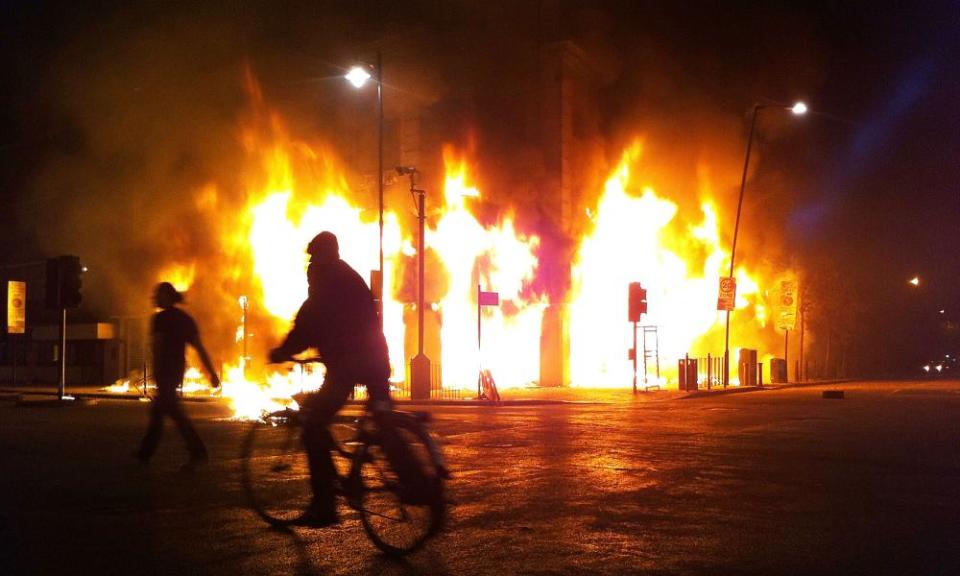A decade after the riots, so little has been learned

On 4 August it will be 10 years since police shot dead Mark Duggan in Tottenham Hale (Conditions that led to 2011 riots still exist today, experts warn, 30 July). It is true that things have changed since the shooting and the events that followed it. Tottenham became a centre for craft beer and London’s only urban cheesemaker. New multi-storey flats surround my central Tottenham abode, very few affordable for existing inhabitants.
But none of that, as David Lammy argues (A decade after Tottenham burned, social alienation means riots could happen again, 30 July), is of much use to those – far too many – who have to rely on food banks to get by and whose future job opportunities look difficult at best.
When Boris Johnson, as the then London mayor, finally returned from a holiday and visited the area some days after, I shook his hand, as president of Haringey Trades Union Congress, and pressed him on the need to invest in people and jobs. But a decade on, there is no sign of the now prime minister’s “levelling up” agenda in this area.
Riots are unpredictable, but as I noted in the Guardian at the time (Tottenham riots: missteps in the dance of police and a frustrated community, 5 September 2011), there is still a general pissed-offness and anger at a system that delivers for the few but certainly not for the many.
Keith Flett
Tottenham, London
• Nazir Afzal’s reflections on the 2011 disturbances are debatable to say the least (Courts failed people ‘caught up’ in UK riots in 2011, says ex-chief prosecutor, 1 August). It was not the cuts that generated the state’s authoritarian response. In the pre-cuts era of the mid-1980s, striking miners and their families also experienced brutal “supermarket” justice.
As with those involved in the 2011 disturbances, this had nothing to do with cuts and everything to do with the discourse of punitive retribution embedded within the government and the criminal justice system. As Mr Afzal said at the time: “Justice, when it’s swift, is most effective. It’s about ensuring that they see the shock and awe of the criminal justice system. Because we represent society, we want to ensure that society is reflected in our courtrooms and we want them to experience what they made us experience.”
Prof Joe Sim
Liverpool John Moores University
• A decade before the Macpherson report (Editorial, 30 July), and eight years after the so-called “Toxteth riots”, Liverpool city council commissioned an inquiry into race relations in the area. Its wide-ranging report, Loosen the Shackles, covered most aspects of local social and criminal policy. It cited many instances of heavy-handed overreaction by the police’s city-wide “operational support divisions”, whose riot response interventions undermined community officers’ efforts to get to know members of the community they were responsible for.
While there are many positive references to the local police division in Liverpool 8, the rest of the force is depicted as heavy-handed, racist and contemptuous of their community-policing colleagues. While some lessons have been learned since that era, it appears that many have not. As George Santayana said: “Those who do not learn history are doomed to repeat it.”
Andy Stelman
Bishop’s Castle, Shropshire
• Have an opinion on anything you’ve read in the Guardian today? Please email us your letter and it will be considered for publication.

 Yahoo Finance
Yahoo Finance 